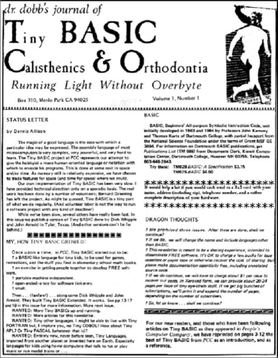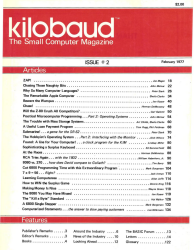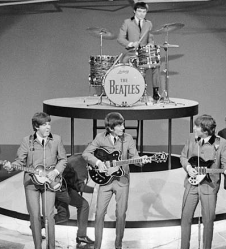I grew up in a small town with a small library. The next town over had what I thought at the time was a big library, but it was actually more like my town had a tiny library, and the next one over had an actual small library. When I left to go to University, I found out what a real library looked like, and I was mesmerized. Books! Lots of books, many of them written in the current decade. My grades probably suffered from the amount of time I spent in the library reading things that didn’t directly relate to my classes. But there was one thing I found that would turn out to be life-changing: A real computer magazine. Last month, Harry McCracken pointed out that the last two widely-distributed American consumer computer magazines ceased paper publication. It is the end of an era, although honestly, it is more like a comatose patient expiring than a shocking and sudden demise.

Actually, before I had gone to college, I did have a subscription to Kilobaud, and I still have some copies of those. No offense to Wayne Green, but Kilobaud wasn’t that inspiring. It was more an extension of his magazine “73”, and while I enjoyed it, it didn’t get me dreaming. Dr. Dobb’s Journal — the magazine I found in the stacks of my University’s library — was tangibly different. There was an undertone of changing the world. We weren’t sure why yet, but we knew that soon, everyone would have a computer. Maybe they’d balance their checkbook or store recipes. A few people already saw the potential of digital music reproduction, although, I must admit, it was so poor at the time, I couldn’t imagine who would ever care.
I say it was life-changing to discover the few issues of Dr. Dobb’s that were published back then because I would go on to contribute to Dr. Dobb’s throughout its storied history. I wrote the infamous DOS extender series, produced special issues, and, when it went mostly digital, was the embedded system blogger for them for more years than I care to admit. In fact, I have the dubious distinction of having the final blog posted; although the website has suffered enough bit rot, I’m not sure any of it has survived other than, maybe, on the Wayback machine. While I wasn’t with the magazine for its entire 38-year run, I read it for at least 35 and had some function there for about 24 of those.

Like a lot of nostalgia, you miss it, but it isn’t coming back. You can argue for or against it, but it doesn’t really matter.
What I think Harry got right his thought piece, though, is that while digital distribution and access are awesome — look at Hackaday, for example — the magazine industry failed to figure out how to stay solvent. McCracken points out that substantial ad revenue fueled huge test labs and hardline investigative journalism in addition to the physical printing. Don’t forget that old-school magazines never made money from your subscriptions either, it was all in the ads. Now, it is hard to generate that kind of revenue and, therefore, to provide those kinds of services. So even if you prefer digital — I do — the big money is mostly gone and gone forever, it seems.

Imagine a world where music is easily distributed for free. You’d hear a lot more music, and, in fact, you do today because independent artists can easily reach listeners directly. But how would the Beatles catalog be different if George, Paul, John, and Ringo needed day jobs? You’d imagine they might produce less and maybe even very different music.
Then again, day jobs may be in short supply soon, too, at least the ones a bunch of young musicians might take. Order taker at a fast food restaurant? That’ll be AI soon enough. Fry cook? That’s already probably a robot arm.
You have to wonder if the destruction of traditional media — TV, movie theaters, magazines, newspapers, books, and record labels — will lead to a different way to compensate creators fairly or if the jobs related to creation will just eventually dwindle to nothing but volunteers. Either way, the days of the big computer magazine is gone, just like the days you could make a living harvesting ice.
from Hacker News https://ift.tt/MlrpAOT
No comments:
Post a Comment
Note: Only a member of this blog may post a comment.